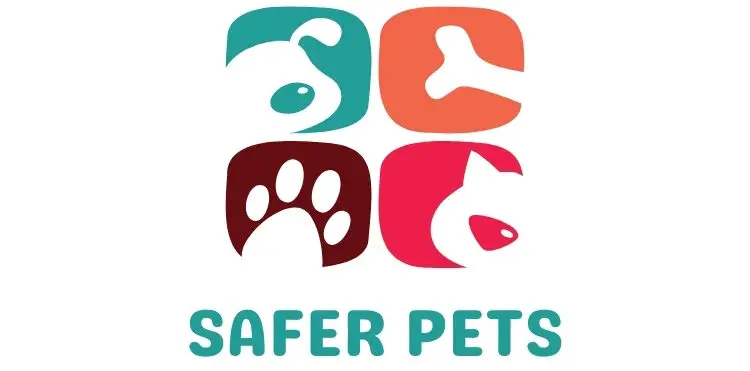Keeping your Rabbit safe greatly depends on being aware of the Rabbit’s environment and eliminating any hazards that may be present.
It’s a Dangerous World if You’re a Rabbit.
Predators are one of the greatest dangers to your pet. All carnivores’ dogs, cats, hawks, owls and weasels see your beloved bunny as a potential meal. A determined predator will break through wire netting to get at its prey.
The slightest indication of a predator is sufficient to send your Rabbit, due to their nervous disposition, careening around its hutch. Such a panicked response could lead to your Rabbit possibly breaking its own back, injuring itself against the wire netting, fracturing limbs or even dying from a heart attack.
A Rabbit’s Home Should Be its Castle.
The best way to avoid this is to ensure that your hutch is sturdy enough to withstand a predator’s onslaught. If your Rabbit is housed in a garden make sure any gates are kept closed at all times. This provides an extra barrier of protection.
Most predators tend to be night hunters so another solution is to put your Rabbit into an indoor enclosure at night to keep it out of harms way.
Another risk to the outdoor Rabbit is the plants on which they graze. Some Rabbits do not have the sense to avoid poisonous plants. Check what plants are in your garden; if any are poisonous to your pet remove them.
A greater risk however is the fertilisers and pesticides which are used on lawns. These can be highly toxic to your Rabbit. Avoid using these if you hope to keep a Rabbit as a pet.
The Heat of Summer.
Summer brings a new set of problems as Rabbits do not handle high temperatures very well. Heat stroke can be fatal to your Rabbit. Ensure during the summer months that your Rabbit is in as much shade as possible. Keep a constant check that they have water available as dehydration is a Rabbits worst enemy. This is particularly true of long haired and overweight Rabbits if they overheat they may become too exhausted to get up and drink.
Keeping Your Rabbit Cool.
You can temporarily cool a Rabbits hutch by hanging wet towels over the sides of the run. Other methods of cooling your Rabbit include placing a little ice in the drinking water to cool it. As Rabbits don’t perspire they lose heat through their ears. Misting the Rabbits ears will also help cool an overheated animal.
If your Rabbit should succumb to heat exhaustion do not submerge or splash the animal with cold water, the shock could kill your Rabbit. Instead dampen the animals’ ears and body with a wet cool cloth to help revive the animal.
Another problem during the summer months is flies. Long haired and overweight Rabbits that are incapable of keeping themselves in a clean condition can suffer from fly strike. Once a rabbit has become flyblown it can go into shock, often with fatal results killing the animal very quickly. Check your Rabbit for regions which may be moist and have attached faecal matter daily and if necessary bathe the animal.
The Round the House Rabbit.
The indoor Rabbit, if permitted to wander freely, will gladly chew any power cords they can get their teeth into with fatal results. Ensure all power cords are out of your Rabbit’s reach. Blocking cords with furnishings may be necessary to stop the Rabbit getting at them.
Another danger for indoor Rabbits is houseplants. Many of the plants with which we grace our homes are fatally toxic to Rabbits. Ensure all houseplants, however harmless looking they are, are placed at a bunny proof height.
Another favoured hazard is the wonderful crop of multicoloured grass we humans tend to cover our floors with. Yes, carpet. If consumed in quantity carpet can easily play severe havoc with your Rabbits digestive system.
Coming to Grips With Your Rabbit.
Handling your Rabbit can be quite dangerous for the animal. Rabbits tend to wiggle and squirm around if not properly held there is every chance the animal may break its back. Learn the appropriate technique of holding and restraining a Rabbit, for its sake and yours.
Never pick up a Rabbit by its ears. This is not only cruel but painful for the animal. The ears are sensitive and full of blood vessels. Picking up the Rabbit and holding it in this manner will make the Rabbit reluctant to be held in the future as it is associated with discomfort.
Avoid using pine or cedar shavings in any Rabbit enclosure as the fumes from these shavings have been proven to cause respiratory problems for small animals including Rabbits.
Medical Misadventures
Finally, ensure you have a veterinarian who is experienced with Rabbits. Under no circumstances should a veterinarian prescribe Amoxicillin. It is fatal to Rabbits. Amoxicillin is a thick, pink coloured, bubblegum smelling antibiotic liquid which has been linked to Rabbit deaths in the past.
Despite the seemingly suicidal nature of the pet rabbit they make fun and charming pets. With a little forethought and attention to your Rabbits environment and care, you should never encounter any of the hazards mentioned above and spend many fun filled years together.
